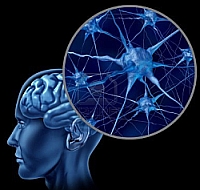
Researchers from China reprogram kidney epithelial cells in human urine to become neural progenitor cells
Singapore: Chinese scientists at the Guangzhou Institutes of Biomedicine and Health have generated neural progenitor cells (NPCs) from epithelial-like cells in human urine, which conatins high amounts of naturally shed kidney epithelial cells and thus act as a rich source of patient-specific cells that is easily obtainable. The research was published in Nature Methods.
The team of scientists led by Professor Pei Duanqing developed a new method to reprogram adult urine kidney epithelial cells into neural progenitor cells. Their protocol combines an episomal system to deliver reprogramming factors with a chemically defined culture medium.
Reprogramming of adult cells usually takes several weeks before they become fully pluripotent. The new method reprograms cells preferentially, thus making them committed to becoming NPCs at an early stage before entering a fully pluripotent state. The NPCs could then proliferate when grown in dishes and could differentiate into neuronal subtypes and glial cells.
The human NPCs were shown to integrate into the host brain and develop into neurons and astrocytes, when transplanted into the brains of newborn rats. Prof Pei's team avoided the use of viruses by using an episomal system instead. This method has the benefit of excluding the possibility of viral integration of the genes encoding the reprogramming factors, which could pose the risk of tumor formation after transplant.
Prof Pei and other authors of the research, said that, "We envision that our protocols can be further applied to human urine cells isolated from patients with neural disorders such as Parkinson's disease, Alzheimer's disease or other neurodegenerative diseases. These patient-specific cells should be useful for modeling disease and for drug screening."




